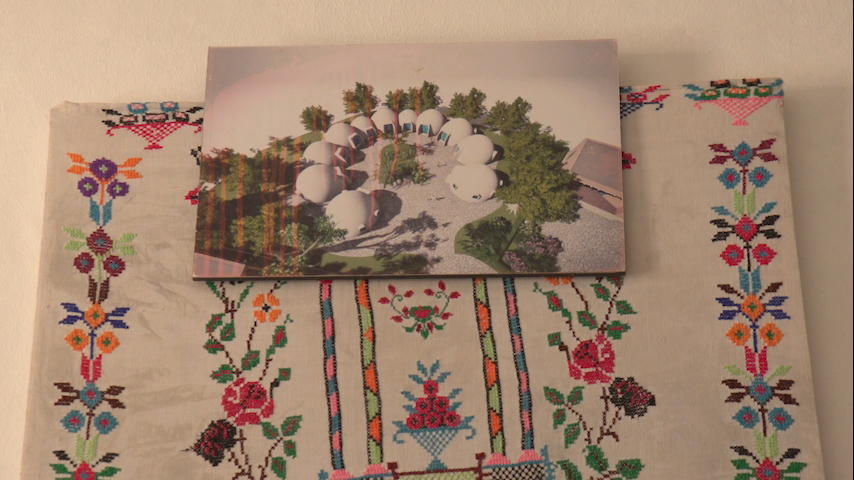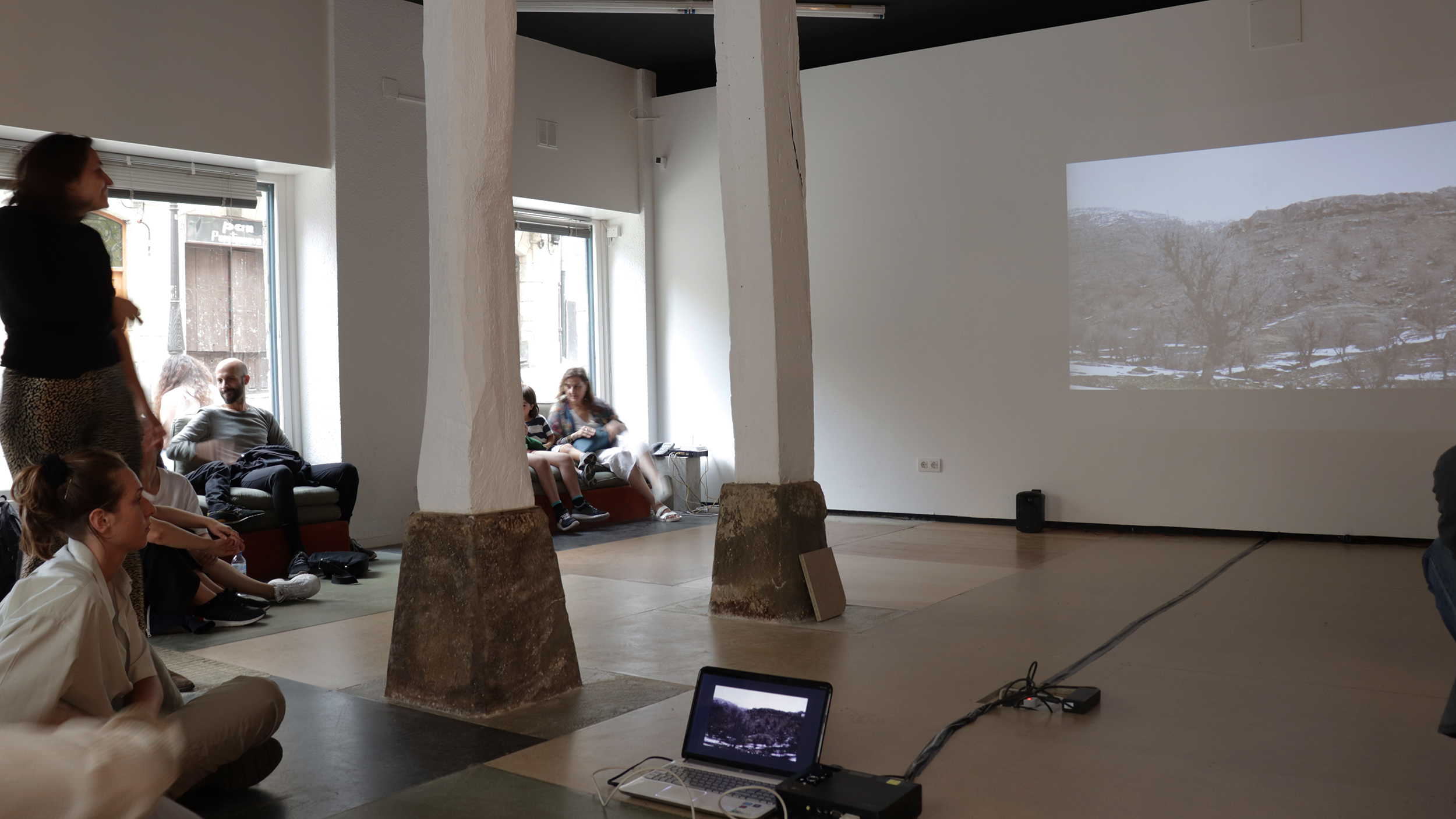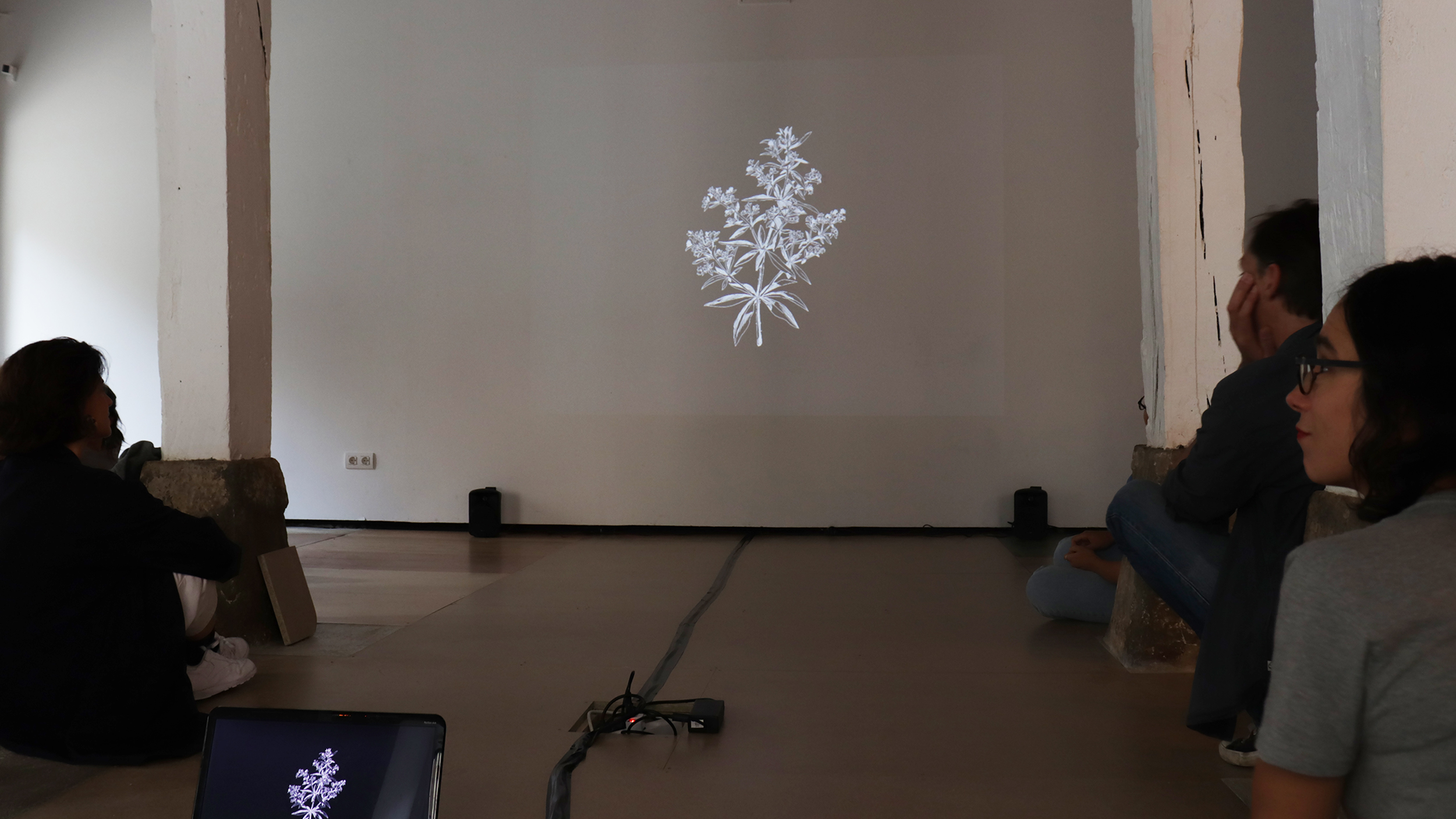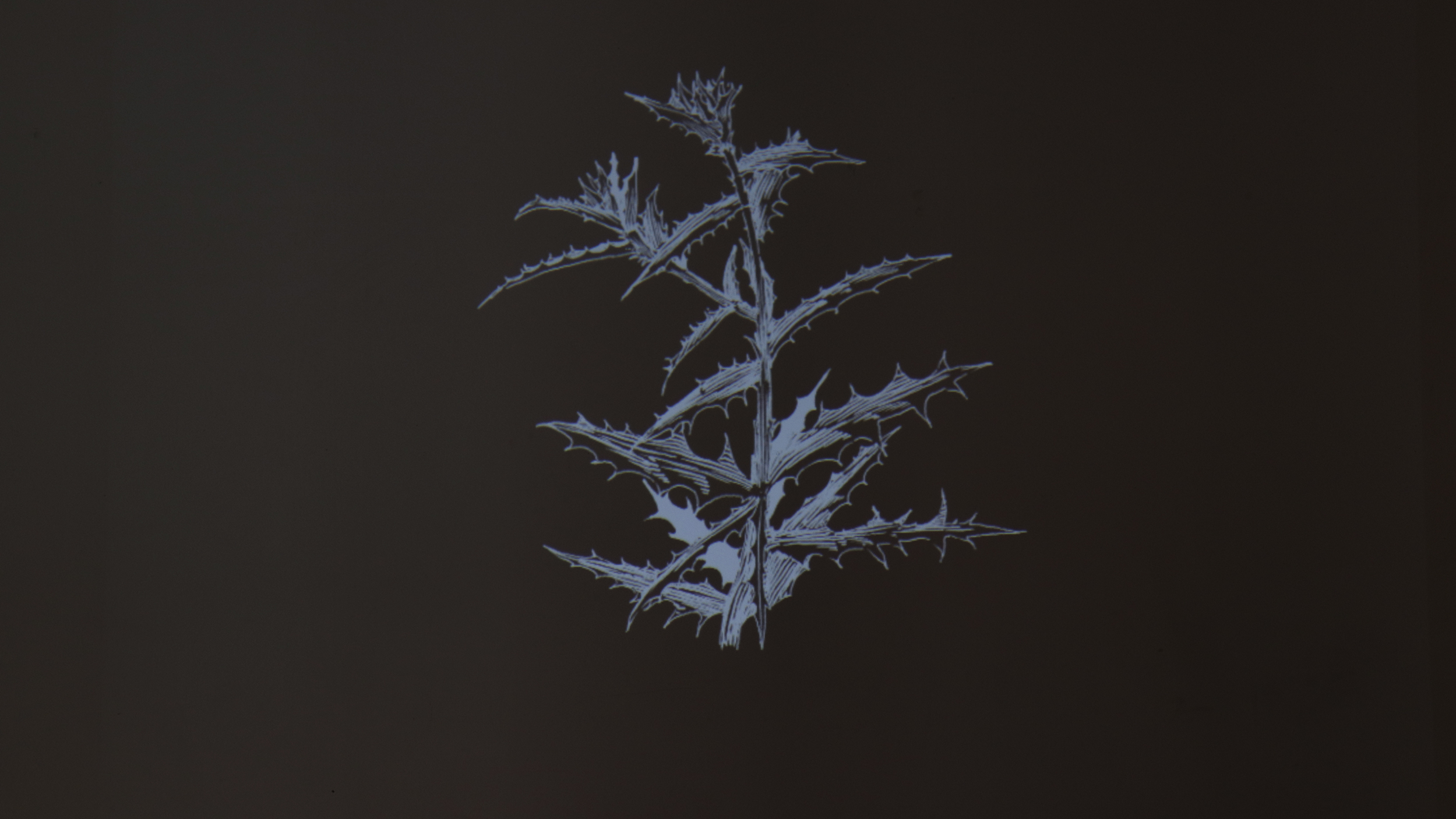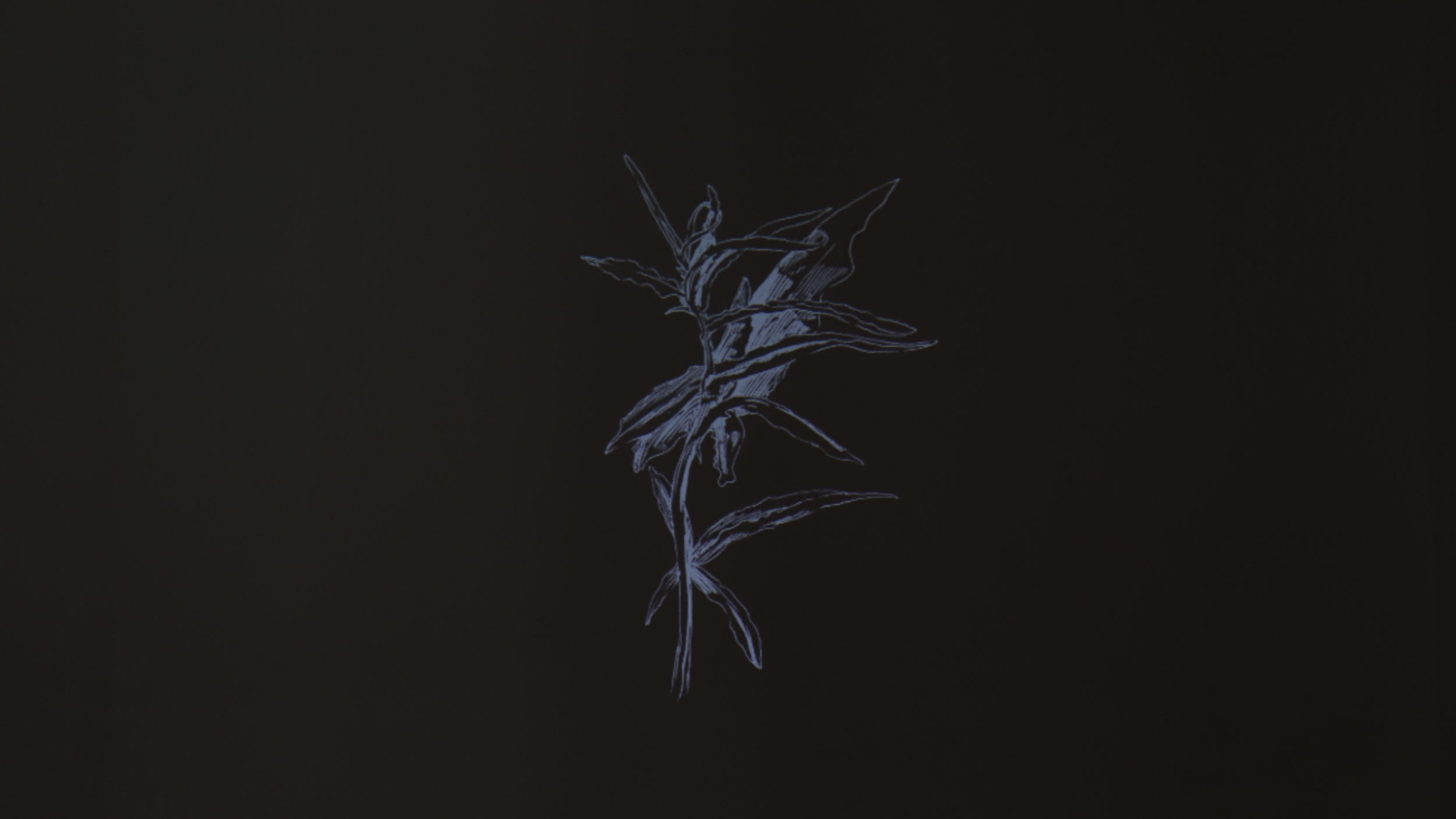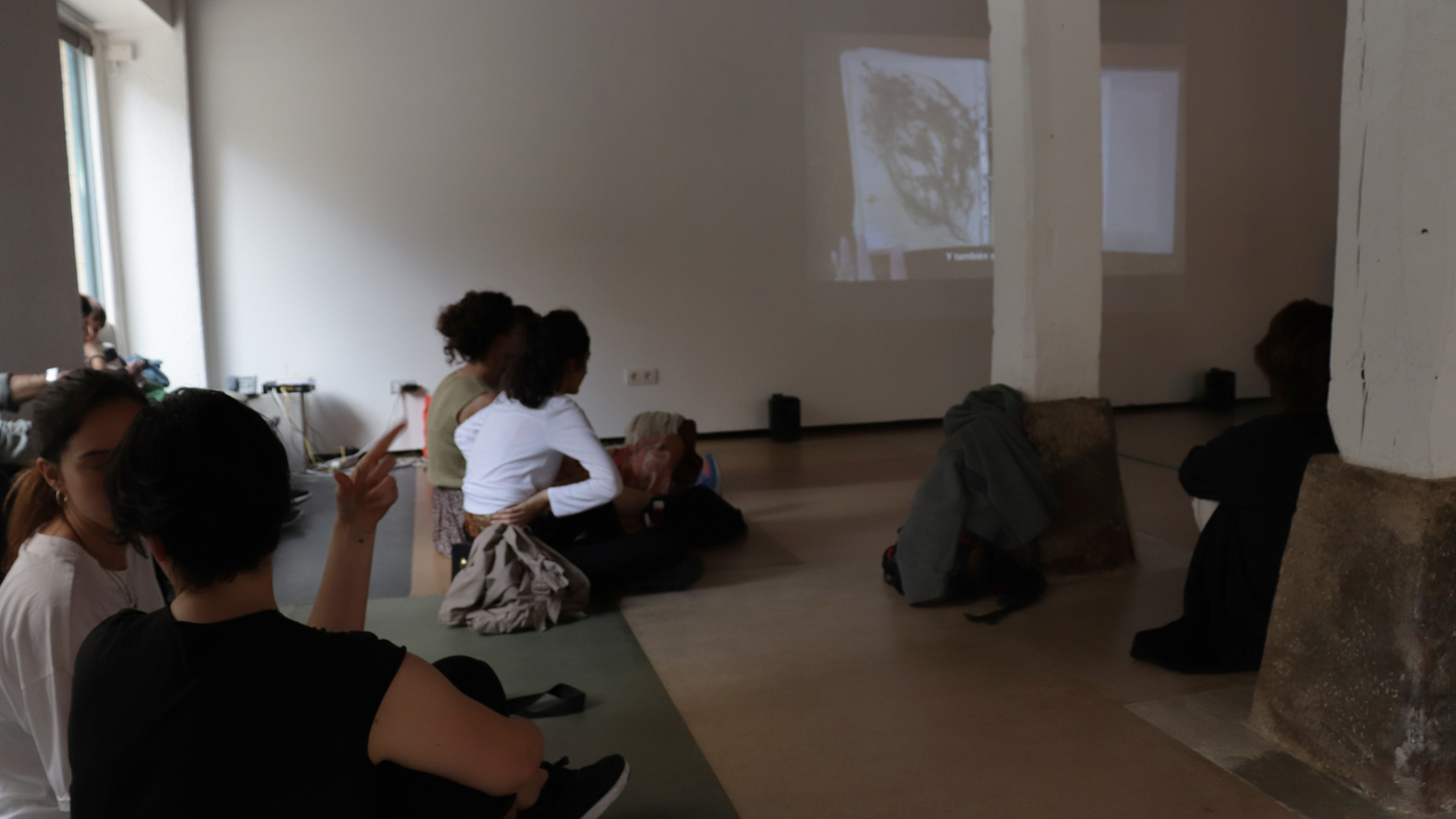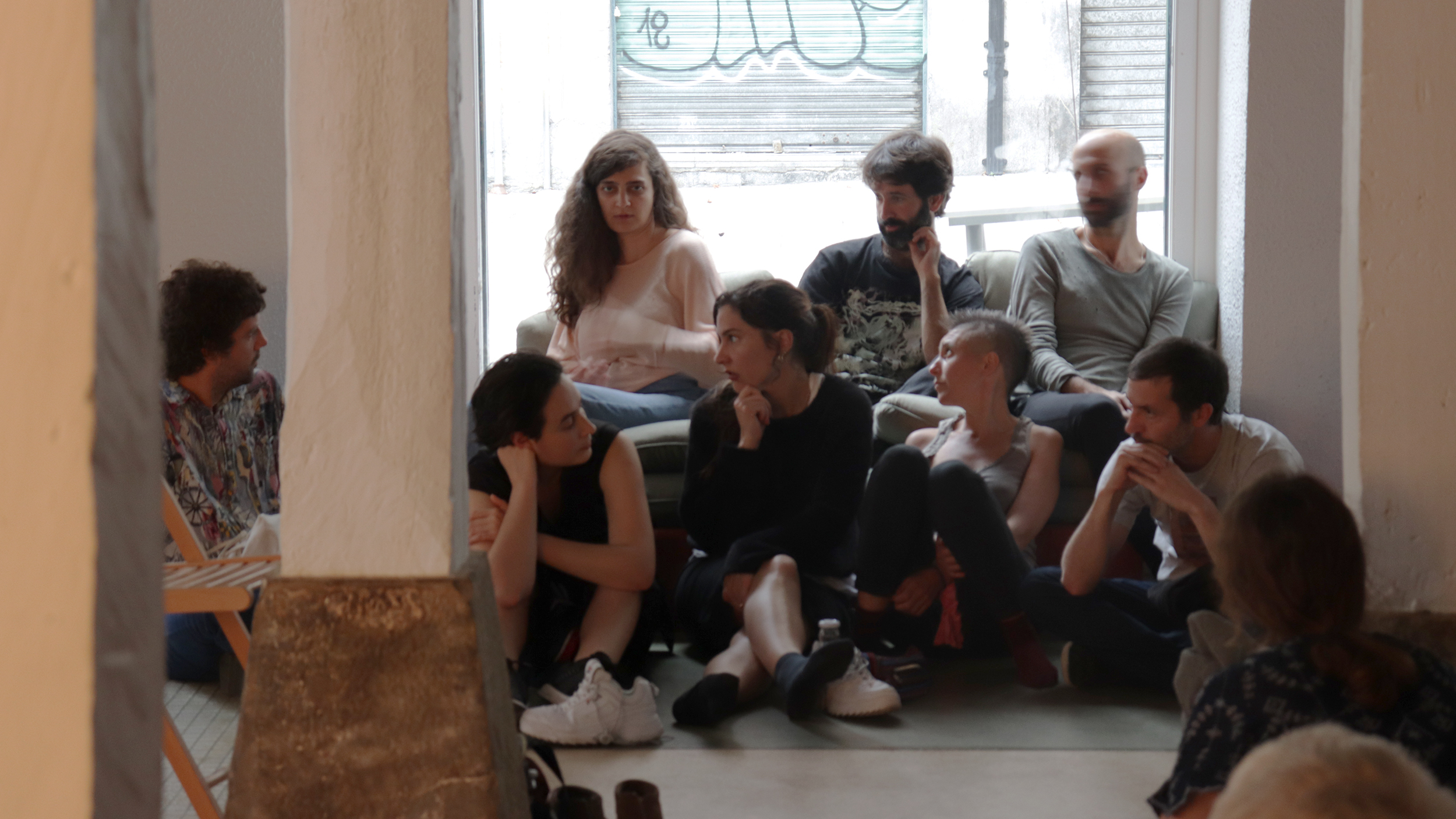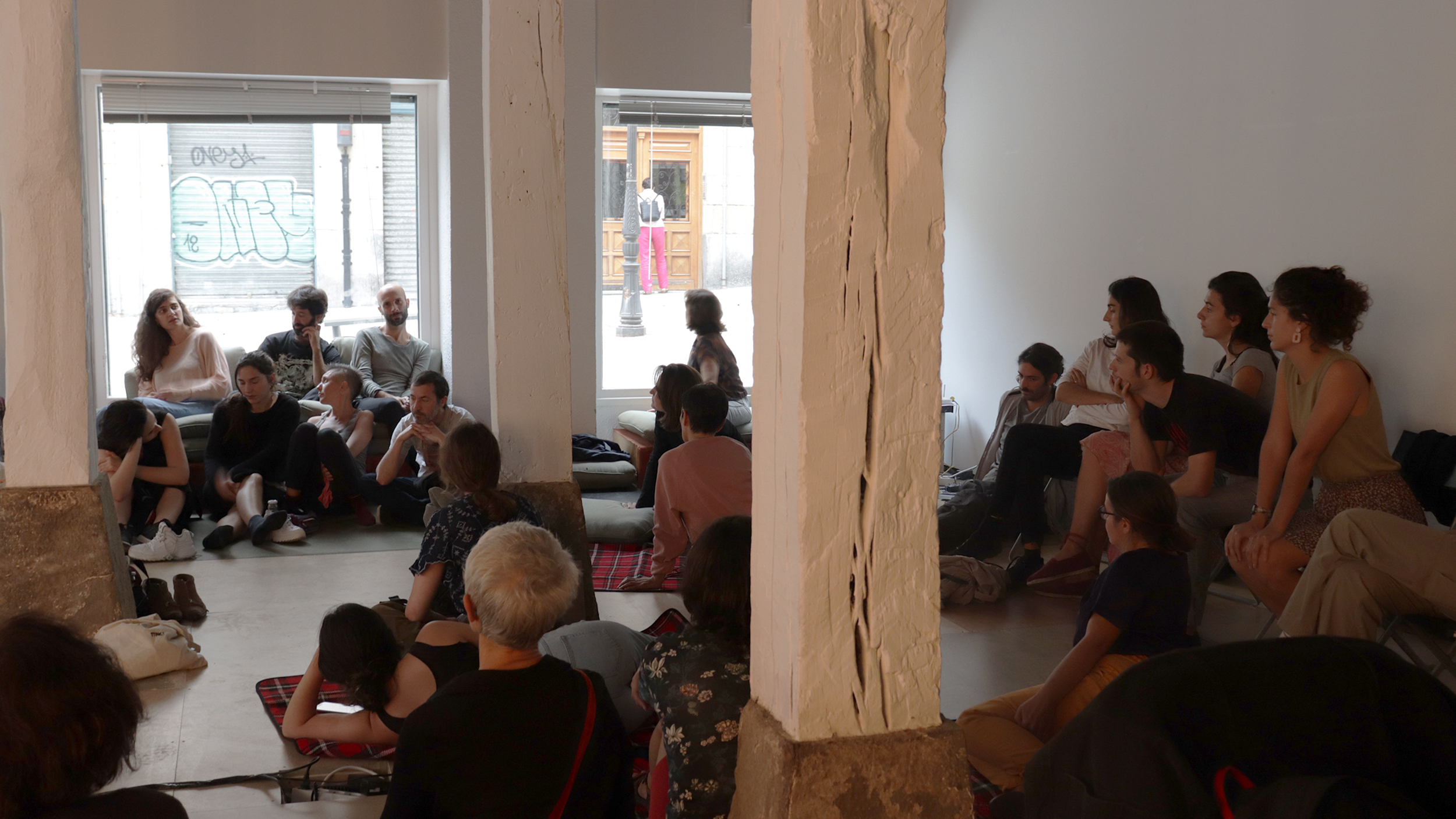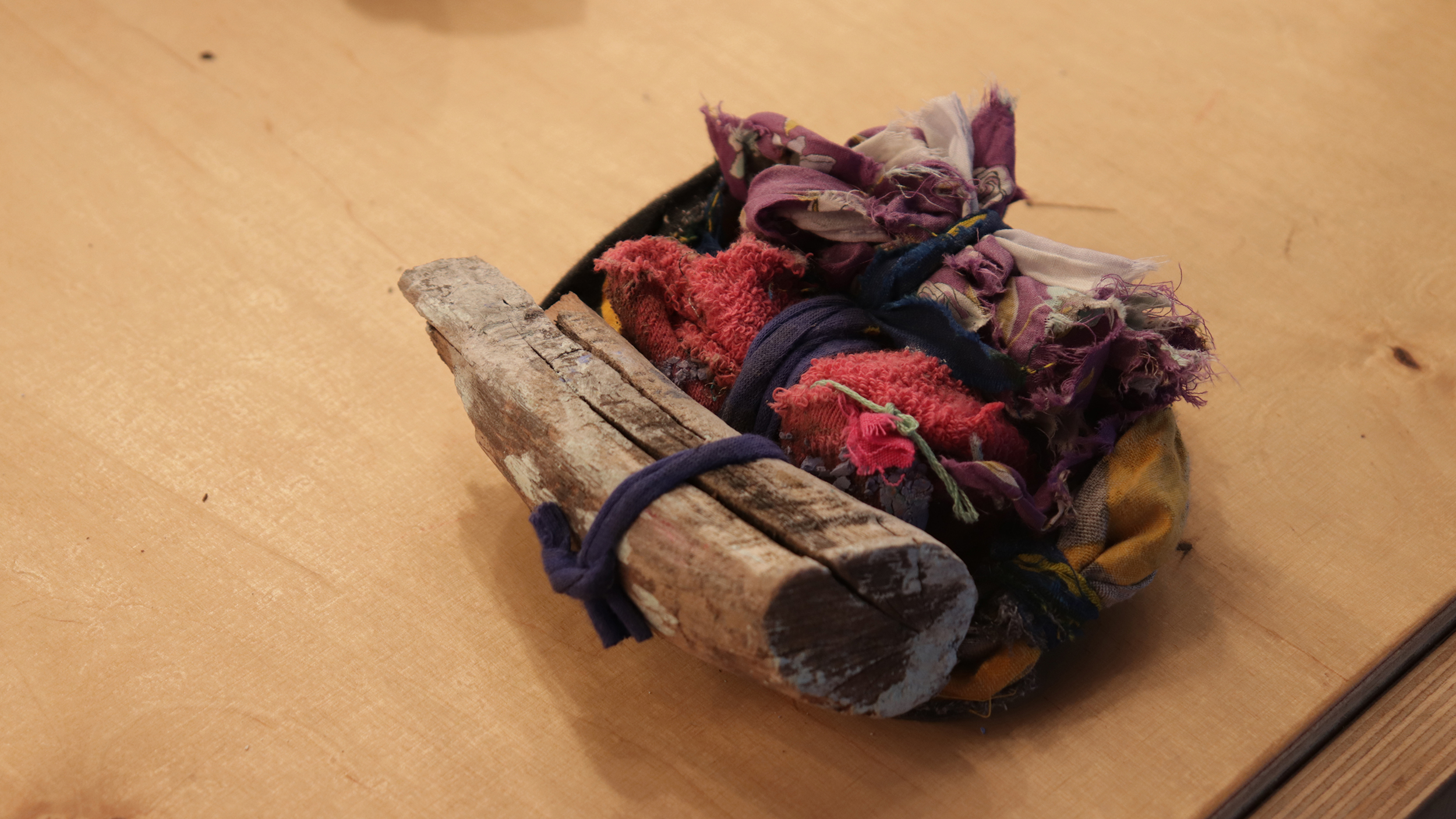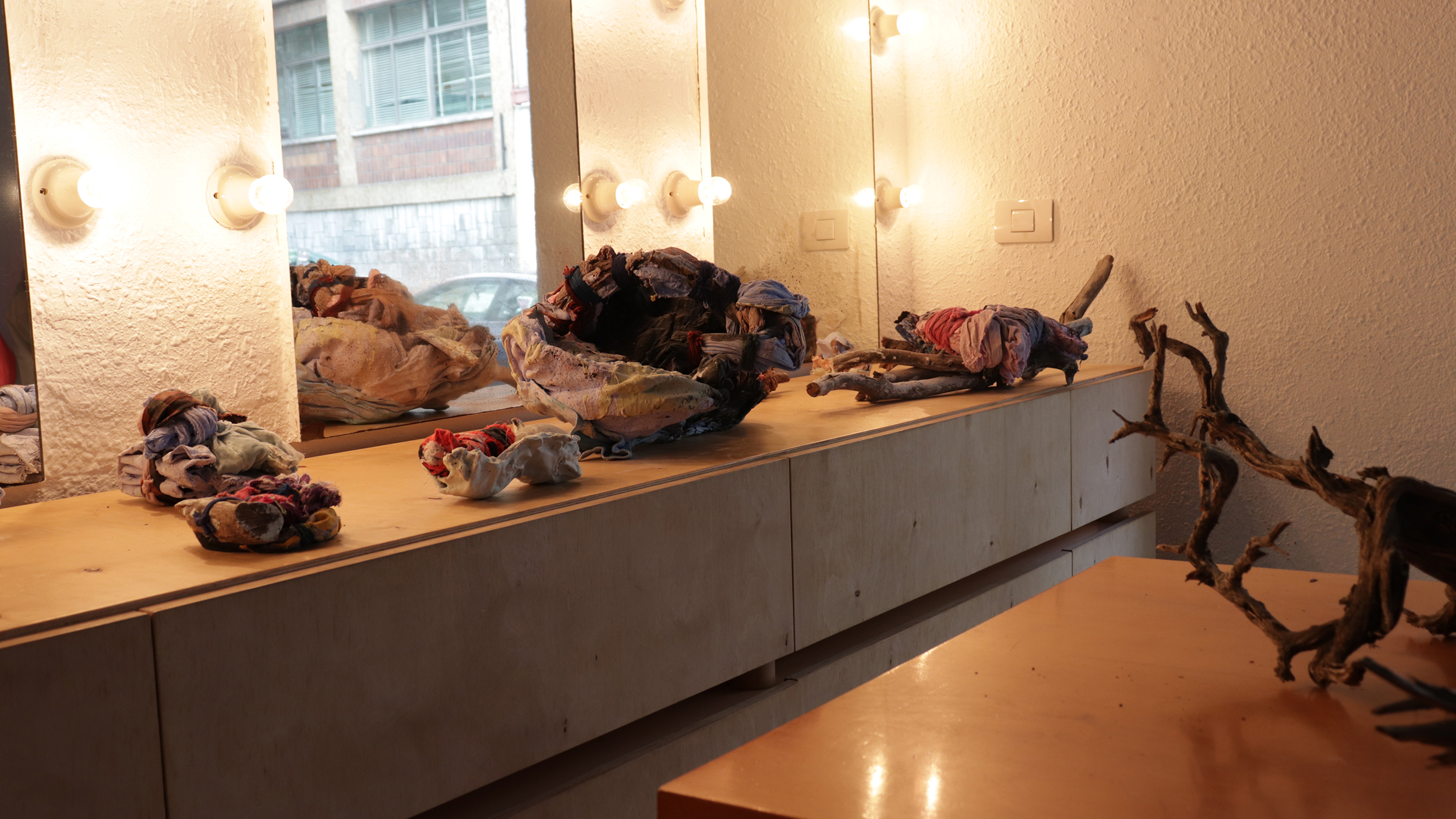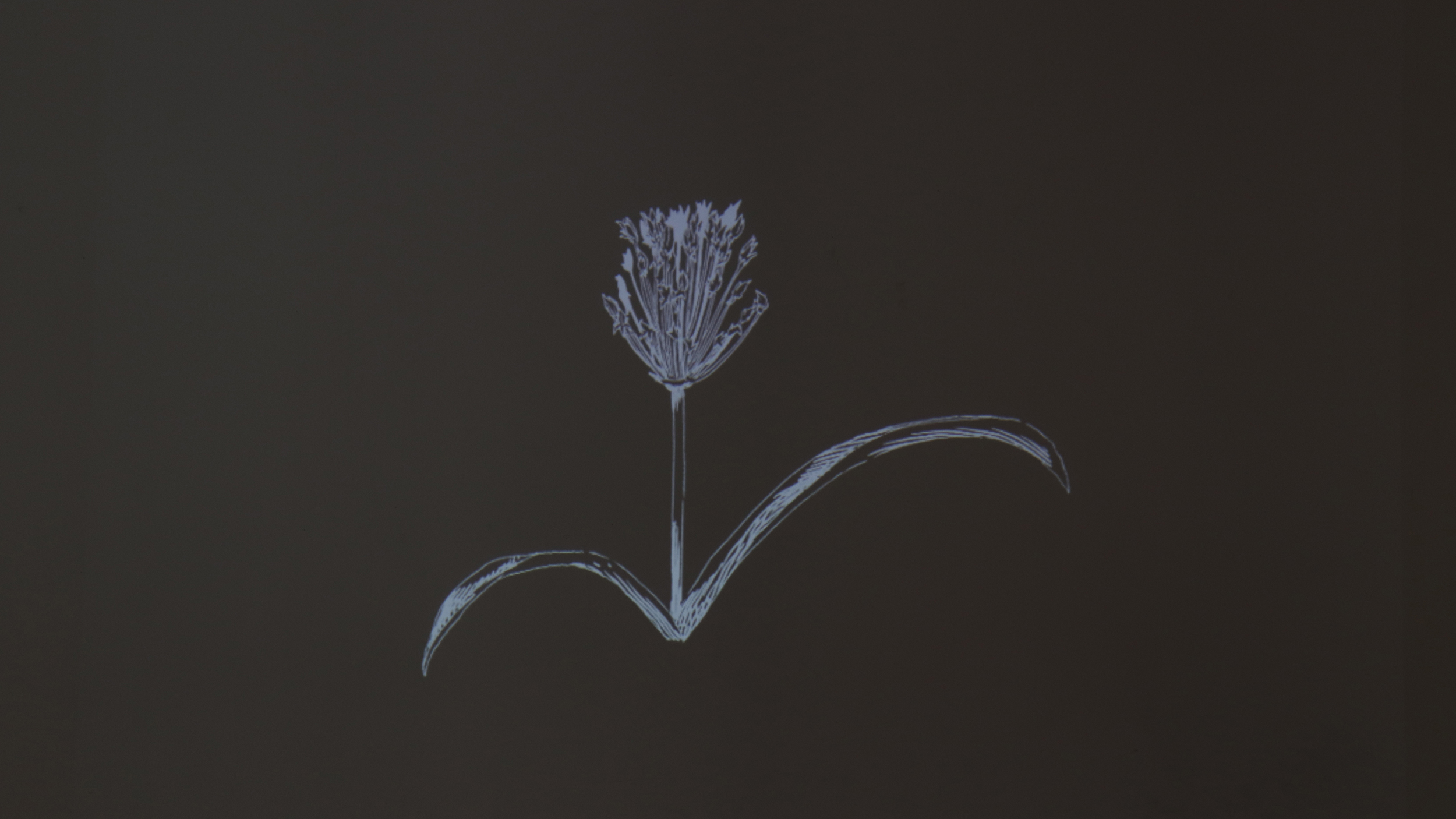One wall productions
DISPLAY SERIES: ELENA AITZKOA + MARWA ARSANIOS
by
Elena Aitzkoa and Marwa Arsanios present two projects: Paraíso terrenal (Earthly Paradise), and Who is Afraid of Ideology? within Display Series. Display Series is one of the lines in our programming and focuses on exhibition formats and installation. Our aim is to create encounters where both local and international artists can show their work in the Bulegoa z/b space, and to generate dialogue.
17:00: opening
17:30: listening session: Paraíso Terrenal by Elena Aitzkoa
18:00: Marwa Arsanios presents Who is Afraid of Ideology?
Dates:
26/09/2019 – 05/10/2019
Monday – Saturday 16:30-20:30
ELENA AITZKOA: PARAÍSO TERRENAL. AUDIO LISTENING SESSION
…Earthly Paradise, danger and beauty, and among all the rarities your presence is the rarest. But when you pass through the gate of that shoddily-fenced garden the frogs greet you leaning to one side, cro-cro, cro-cro… Curlysnout. The river has just dried up, the lake is lovely as a kiss, I swim in it and the icy water speaks to my bones… Scattered flock of birds flap their wings with grey-brown pigeons. Faint!
Paraíso Terrenal was issued on vinyl by Grupo de fe in March 2019. It contains recordings of poems recited in the surroundings of Apodaka in autumn 2017 and 2018; the outside sings. It is a simple proposal.
The album was presented with a performance and sculptures at the Botanical Gardens in Granada as part of FACBA festival and at CentroCentro, Madrid, in the Frecuencia Singular Plural cycle. The listening at Bulegoa z/b is a complete, shared hearing of the record with some drawings.
MARWA ARSANIOS: WHO IS AFRAID OF IDEOLOGY?
As an introduction, standing on a stony path, director Marwa Arsanios faces the camera and wonders: “What does it mean to belong to a place? What does it mean to “be here”? What does the word “nature” encompass? What does it imply when we say “we”? These political questions arise from experiments conducted by women in three war-torn places. First, in the mountains of Kurdistan, in early 2017, the guerrilla led by the Kurdish women’s autonomist movement invites us to experience and consider space, plants, survival, ecology and economic battles in a different way. The process, so we are told, ensues from practical concerns: how do you set up an organic food production cycle? When does a tree need to be cut down? Then in Jinwar, literally the “place of women”, a village in Rojava, Northern Syria, built by women for the exclusive use of women. And finally, in a cooperative in the Bekaa Valley, near the Syrian border, which has become
a sanctuary-like community for refugees. In these communities, the issue of the reappropriation of the land and means of production and subsistence is paramount, and it creates a different landscape. These three eco-feminist strategies at work bring about self-governance, and the creation and transmission of knowledge. These fragile yet so precious experiments are like pages in an herbarium, featuring carefully collected and hand-drawn plants, arranged in the film like silent, up-front manifestos. (Nicola Feodoroff)
Elena Aitzkoa (Apodaka, 1984). Lives in Bilbao. Her practice includes sculpture, drawing, poetry and performance. Her works are a varied ecosystem which is nourished by physical and emotional elements from relatively close surroundings and her life experience. Recent projects include Zarza Corazón (2019), Museo Patio Herreriano, Valladolid; the vinyl record of poems and whistling Paraíso Terrenal (2019); the film Nuestro amor nació en la Edad Media (2018) and the performance cycle Headscarfs close to the Ground, for Oslo Pilot (2016).
Marwa Arsanios is an artist, filmmaker and researcher who reconsiders politics of the mid-twentieth century from a contemporary perspective, with a particular focus on gender relations, urbanism and industrialisation. She approaches research collaboratively and seeks to work across disciplines. Arsanios has been the subject of solo exhibitions at Skuc Gallery, Ljubljana (2018); Beirut Art Center, Beirut (2017); Hammer Museum, Los Angeles (2016) and Witte de With Center for Contemporary Art, Rotterdam (2016) among others. Her work has also been shown in a number of group exhibitions, including Warsaw Biennial (2019), Sharjah Biennial (2019), The Gwangju Biennial (2018), Lulea Biennial (2018), From Ear to Ear to Eye, Nottingham Contemporary, UK (2017); Home Return, Maxxi Museum, Rome (2017). Screenings of her videos have taken place at Copenhague dox (2018); the Centre Georges Pompidou, Paris (2011, 2017); Berlin International Film Festival, Berlin (2010, 2015); e-flux storefront, New York (2009). She was awarded the Georges de Beauregard award at FID Marseille (2019). She is the co-founder of 98weeks Research Project. She is currently a PhD candidate at the Akademie der Bildende Künste in Vienna.


